10 Proven Ways the Body can Boost the Brain
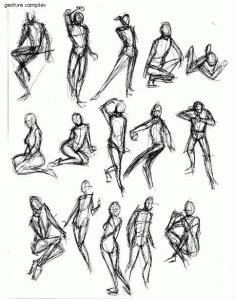 How we use our bodies influences brain function and cognitive performance. Walking around to think out problems, gesturing with your hands to articulate a a complex point, smiling to feel happy, playing catch for a study break to enhance learning, taking a nap to supercharge problem solving and many other simple behaviors have scientific backing.
How we use our bodies influences brain function and cognitive performance. Walking around to think out problems, gesturing with your hands to articulate a a complex point, smiling to feel happy, playing catch for a study break to enhance learning, taking a nap to supercharge problem solving and many other simple behaviors have scientific backing.
Found a post on the PsyBlog, 10 Simple Postures That Boost Performance, that summarizes this effect well. The author tells you specifically what to do, why it works and then in some cases provides a link to a scientific study that backs it up.
This is a great way to get started in using your body to boost your brain. Don’t expect instant results. It takes some time and practice. You may want to read the supporting articles to get the details.
Very interested to hear from readers that use simple body-based techniques to improve cognitive performance.
Image Source: Blazedent
Categories: Lifestyle, Memory and Learning, Problem Solving Tags: embodied cognition
Tai Chi for Cognitive Training?
Tai Chi is an ancient Chinese practice for linking mind and body in a martial art. Today it is a low-impact form of exercise and wellness that may improve a number of cognitive functions including mental focus, memory, managing emotions and perception.
Tai Chi involves a series of fluid, slow-paced motions and stretches that have been described as “meditation in motion”. The benefits of Tai Chi have just started to be formally studied. An in depth article on the Mayo Clinic website, Tai Chi: Discover the many possible health benefits, reports there is preliminary evidence for these benefits:
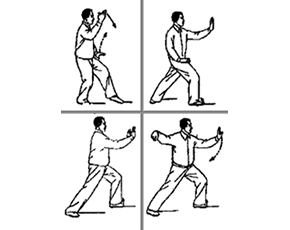 Reducing anxiety and depression
Reducing anxiety and depression- Improving balance, flexibility and muscle strength
- Reducing falls in older adults
- Improving sleep quality
- Lowering blood pressure
- Improving cardiovascular fitness in older adult
- Relieving chronic pain
- Increasing energy, endurance and agility
- Improving overall feelings of well-being
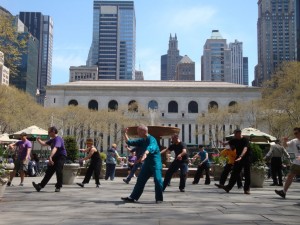 Clearly these benefits go beyond improving brain function and cognitive performance. Getting started in Tai Chi is not hard. There are many fine resources available for little cost. You can produce results in as little as 8-12 weeks.
Clearly these benefits go beyond improving brain function and cognitive performance. Getting started in Tai Chi is not hard. There are many fine resources available for little cost. You can produce results in as little as 8-12 weeks.
Check out this 5 minute free video for a decent introduction. It won’t make you an expert but it should be enough to determine if you want to try more. There is a product pitch but it is soft.
I am interested in readers’ suggestions for resources for learning Tai Chi, especially those that emphasize improving brain function and cognitive performance.
Categories: Ancient Ways, Manage Emotions, Memory and Learning, Mental Focus, Perception, Training Tags: cognitive fitness, embodied cognition, exercise
Does Raising a Child Make You Smarter?
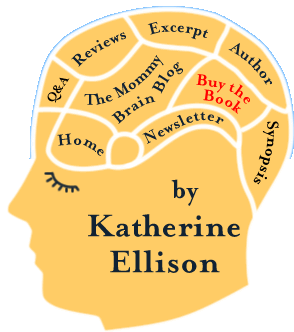 Absolutely, if you are the Mother! At least that is the argument made Katherine Ellison in her book the Mommy Brain: How Motherhood Makes Us Smarter.
Absolutely, if you are the Mother! At least that is the argument made Katherine Ellison in her book the Mommy Brain: How Motherhood Makes Us Smarter.
Motherhood gives a brain boost in many ways including face reading, multi-tasking, fearlessness, serenity, empathy, assertiveness and mental dexterity. These improvements in both IQ and EQ come from a combination of new hormones, motivation and practice that motherhood brings about.
The book is well founded in the latest neuroscience. It upends the stereotype of mothers checking their brains at the delivery room doors. Check out the Mommy Brain site by clicking on the graphic to the right.
Categories: Books, IQ and EQ, Lifestyle, Manage Emotions, Mental Focus, Parent, Perception Tags: embodied cognition, EQ
Use Your Body to Improve Thinking Instantly!
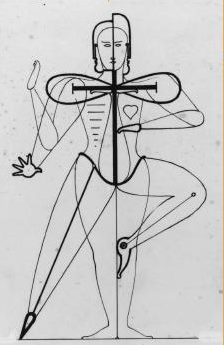 Over the last 20 years scientists have made good progress in understanding how our bodies impact the way we learn, think, solve problems manage emotions and do other mental tasks. A new view has emerged called embodied cognition that argues how our minds work is strongly determined by how our bodies interact with the world.
Over the last 20 years scientists have made good progress in understanding how our bodies impact the way we learn, think, solve problems manage emotions and do other mental tasks. A new view has emerged called embodied cognition that argues how our minds work is strongly determined by how our bodies interact with the world.
Embodied cognition has practical implications for improving cognitive performance and will be a frequent topic on the Next Brain Blog. For example, taking simple actions such as literally stepping back when faced with a tough problem or more complex actions such as taking a walk lead to better results.
This is an exciting result because it shows a very simple actions can immediately improve the performance of our minds and brains!
Talking and thinking with our hands, how we sit or hold our arms (body posture) and any sort of short-duration physical activity have all be shown to improve various aspects of thinking, problem solving and learning.
Take for example the 2007 study that was recently blogged about as, Unravel Problems by Folding Your Arms, in Psychology Today. The idea that folding your arms could in fact help you solve hard problems may seem a bit simplistic but there is some neuroscience behind it:
“Crossing our arms, Friedman and Elliot argued, sends our a brains a “proprioceptive cue.” “Proprioception” is the scientific term for our perception of the relative position of our body parts. When our arms are crossed it tells the brain to buckle down and get ready to work through a difficult problem. So next time you’re faced with a protracted project or a tough task, cross your arms to see it to a speedy, successful conclusion. Just remember, while our brains perceive crossed arms as a sign of perseverance, others may perceive it as a sign of boredom. Body language can mean many different things to different people in different situations-it’s part of what makes the field so exciting!”
If you are still skeptical watch the highly effective problem solvers around you. What do they do with their bodies when they are stumped?
Source: Image adapted from Moving Bodies.
Categories: Lifestyle, Memory and Learning, Problem Solving Tags: embodied cognition
